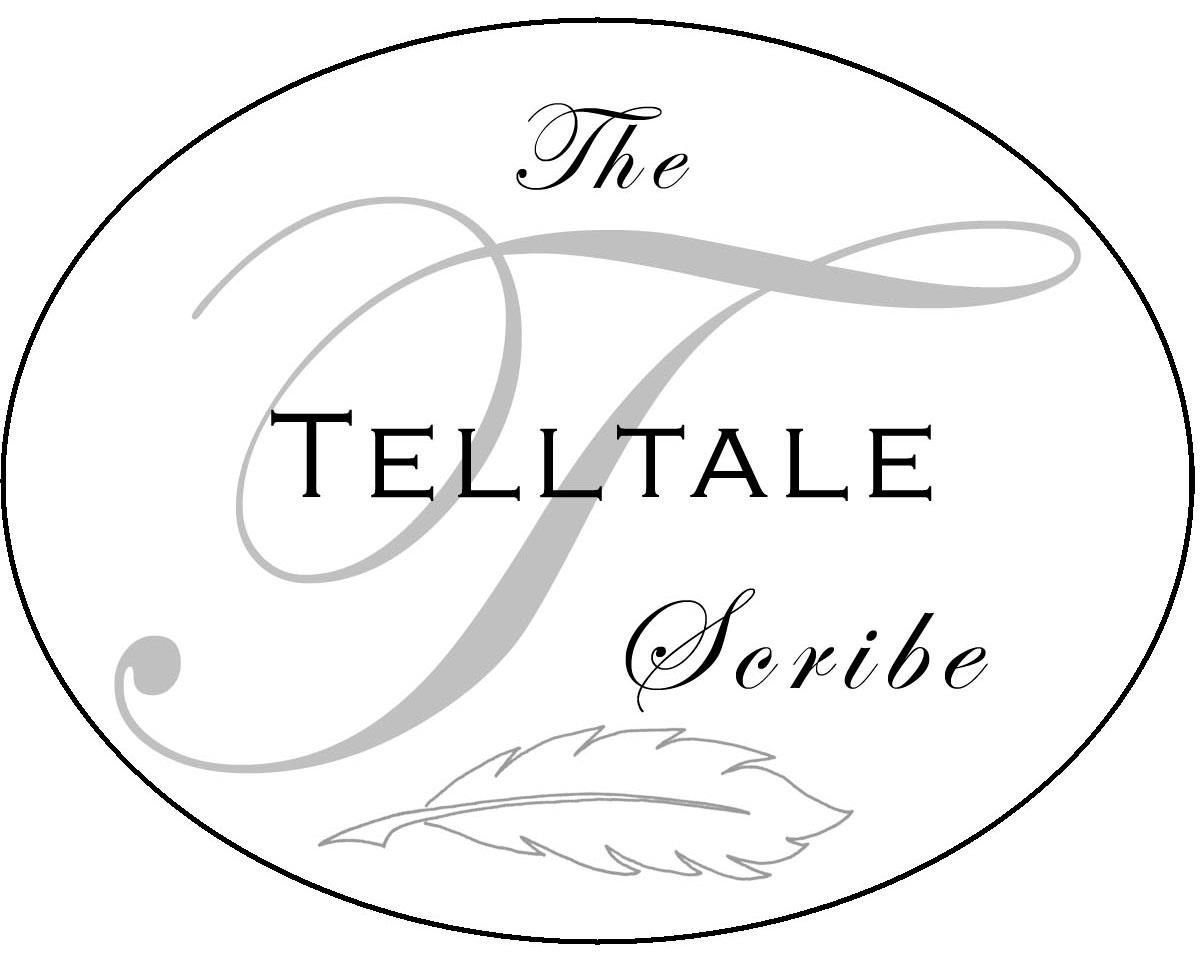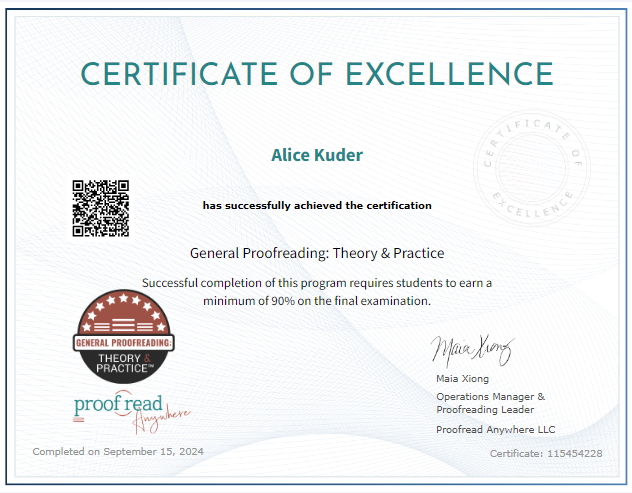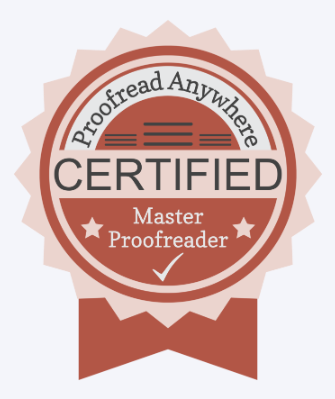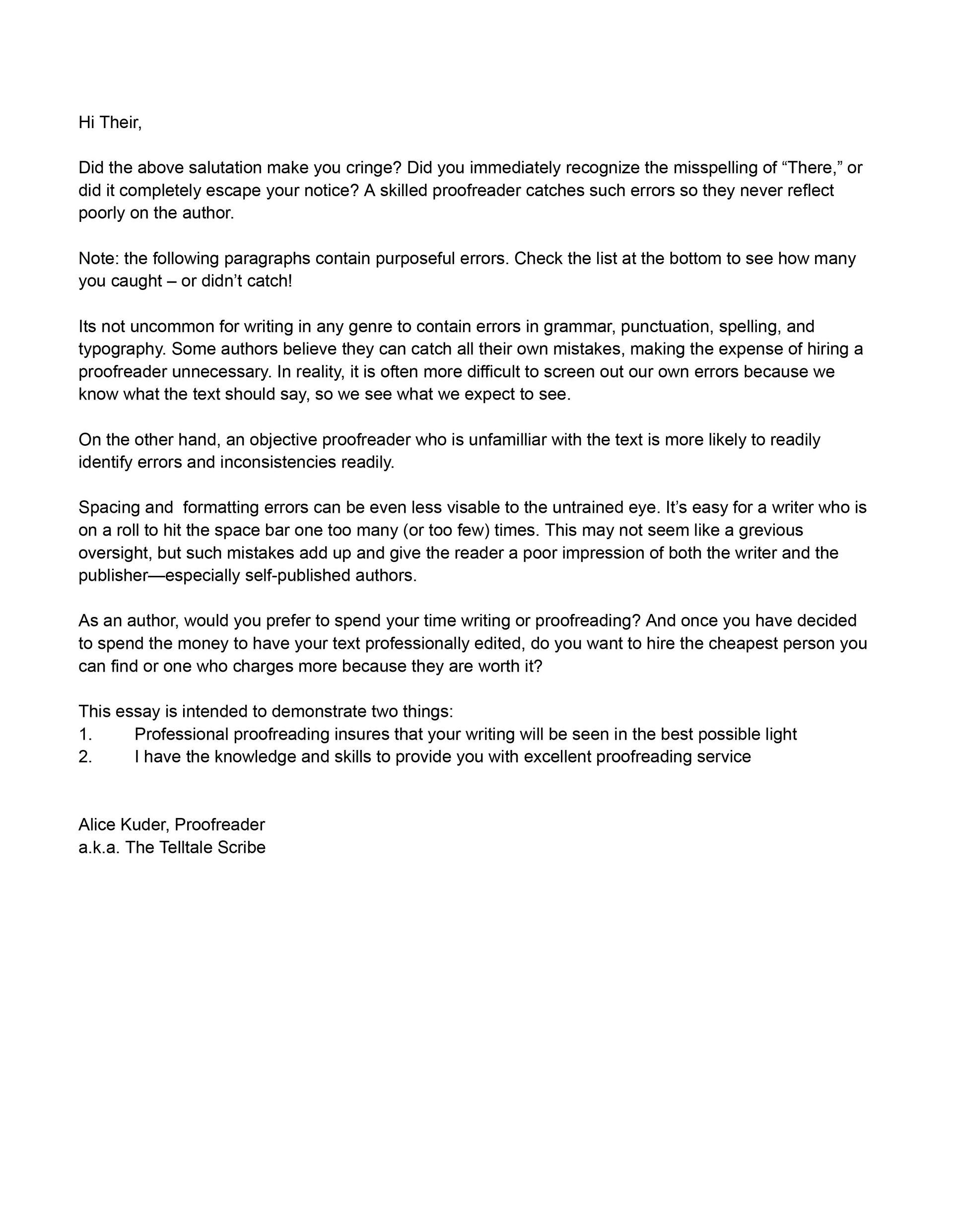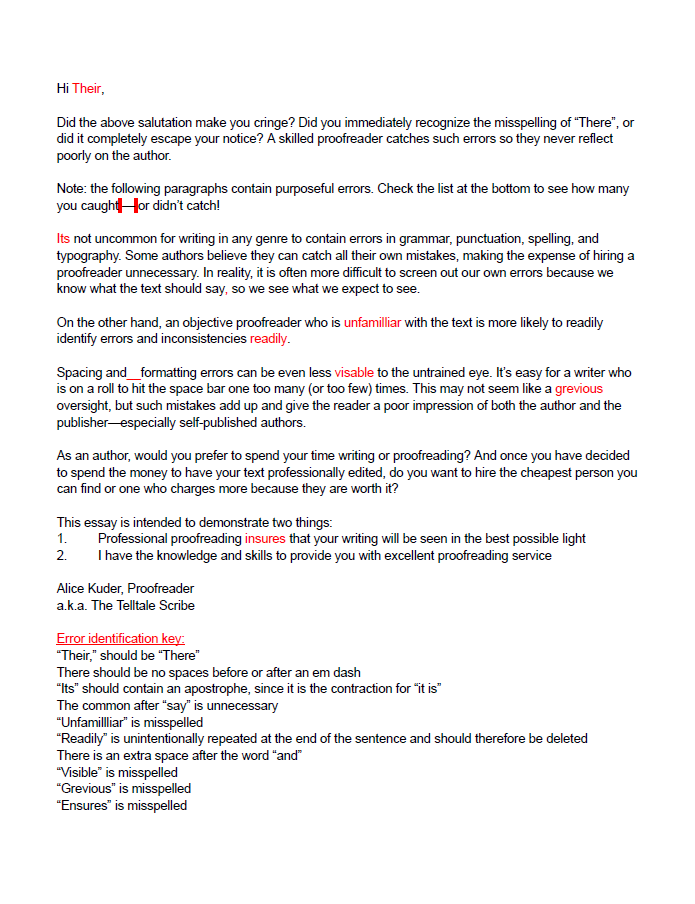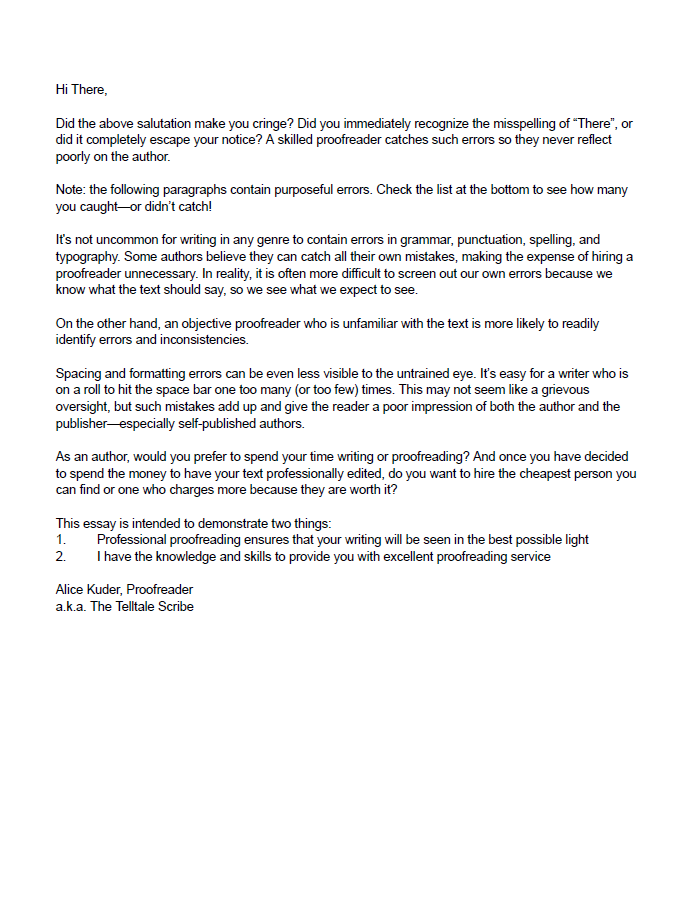A word about proofreading
What exactly is proofreading, and how does it differ from other types of editing?
Proofreading is the process of reviewing and correcting written material to ensure it is free of spelling, grammar, punctuation, and formatting errors. It is a crucial step in the writing process that ensures the final product is polished and professional.
Editorial services can be a source of great confusion, so it’s essential that an author and an editor agree on the scope of the service to be provided.
It is also important to note that the terminology concerning editorial roles can be inconsistent even among professionals in the publishing world.
Nevertheless, there are generally four levels of editing a writer might require before publishing a manuscript.
Developmental editing (a.k.a. substantive or structural editing)
A developmental editor is the first to read the document. They do a deep dive into the material and advise the author on revisions. Their job is to view the work as a whole, looking at structure, organization, overall content, and cohesion.
Line editing
Once the developmental editor has evaluated the manuscript as a whole, a line editor steps in using a finer lens to examine style, tone, and flow, preserving and enhancing the author’s voice. The line editor buffs the text and makes it shine!
Copyediting
The copyeditor is the last one to check for errors and inconsistencies in phrasing, structure, and clarity. They also check for grammar, spelling, typographical errors, and punctuation, which is why it is often confused with proofreading, but copyediting entails a significantly higher level of scrutiny.
Proofreading
A proofreader is the final filter—a fine-mesh screen for catching errors in spelling, grammar, typos, and punctuation before publication. It is a proofreader’s job to know the difference between “two” and “too,” “it’s” and “its” and “accept” and except.” (Spell-check won’t catch those errors.) The proofreader also notes and corrects, when appropriate, the placement of commas, colons, semi-colons, hyphens, etc.
A word about grammar checkers and AI (Artificial Intelligence)
As with spell-checkers before them, both grammar checkers and AI are valuable tools for writers, but they have yet to write an algorithm that can understand tone, and context, and an author’s unique voice. And then there are times when we purposefully choose to break the traditional rules of grammar and format; try explaining that to a machine.
The Benefits of Hiring an Experienced Proofreader
Hiring a proofreader has many benefits for your work. First and foremost, a proofreader has the knowledge and expertise to identify and correct errors that an untrained eye may miss.
This ensures that your work shines and communicates your message effectively.
Working with a professional proofreader also saves you time and effort. Rather than spending hours reviewing your work and trying to catch every error, you can trust an expert to do the job quickly and efficiently.
Hiring a proofreader is an investment in the quality of your work. It ensures that your writing is polished and professional,
enabling you to achieve your goals as a writer.
You choose the fee schedule that meets your needs.
Proofreading:
$0.008/word
$3/page
$20 minimum charge
Contact Alice today to learn more or to schedule a consultation
by phone
(206) 708-9800
or by email
Alice@TelltaleScribe.com.
Professional Proofreader

Address: Seattle, WA
Phone:
(206) 708-9800
Email:
Alice@TelltaleScribe.com
